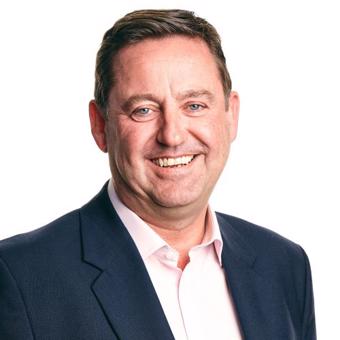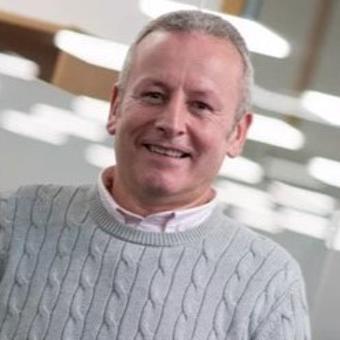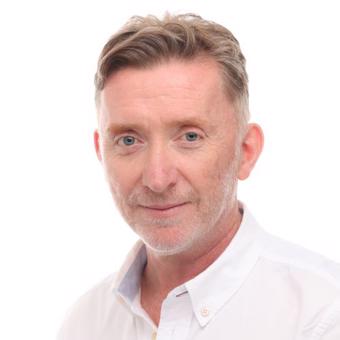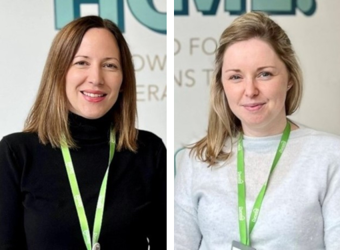On his legal career, moving in-house and setting up his own fitness brands
Justin, can you give us an overview of what SSP does?
We’re listed on the London Stock Exchange and operate restaurants, bars, cafés, food courts, lounges and convenience stores in airports and railway stations. We have 30,000 employees and operate over 2,000 units in 29 countries in 600 locations through a mixture of third party and own brands. These include brands such as Upper Crust, Starbucks, Caffè Ritazza, Burger King, M&S Simply Food, Millie's Cookies and YO! Sushi.
You arrived at SSP in April so how have your first few months been?
They’ve been great. We’ve got a small but excellent and friendly team which has made the move very easy. I’ve relished the opportunity of being in-house and the sheer breadth of legal issues I am now required to cover.
What kind of work have you been doing since joining?
Probably one of the best things about the role is the variety of work. On the commercial side, I’ve been working on tender bids with airports, airport concession agreements, supply agreements and advising on and negotiating terms of international and jurisdiction specific franchise arrangements. The corporate work has also been varied with a range of governance and board obligations to consider. I also work alongside the treasury team, advising on parent company guarantees, bank guarantees and performance bonds.
What have been the biggest projects you’ve worked on since being in the role?
There have been lots of mini-projects but perhaps the ones that stand out are rolling out the company’s international share scheme to seven countries, structuring an international JV, amending the group’s facilities agreement and working with our internal auditors on the implementation review of our anti-bribery & corruption policies worldwide.
How involved are you in the business’ international legal affairs?
The role involves supporting the business on legal issues internationally including in the UK, Nordics, Europe, Middle East, Asia Pacific & USA with a particular focus on the EEME region as well as providing support to our newly appointed APAC lawyer. So any commercial matters for EEME such as new tenders or advising on franchise arrangements come directly to me. Working with our international commercial teams has been one of the highlights of the role as well as learning about some of the country specific and cultural issues that arise in the places that we operate.
What have been the biggest challenges so far?
It’s the challenges that make the role so interesting and we’re probably no different to other in-house teams. We’re really busy with competing workloads but for me the biggest challenge is making sure we continue to engage with and listen to different parts of the business, so we understand their changing needs and can demonstrate how we can add value to the business and deliver effective and relevant legal advice in a business friendly way.
What’s next for SSP?
We only listed on the London Stock Exchange last year so it’s going to be interesting to see how we develop and grow as a company. Specifically, at the moment, I’m supporting the business with preparations for our year end results that will be announced at the end of November as well as planning ahead for our AGM which will be held in March. On top of that, our commercial team has an active pipeline and so there’s always plenty of deals and contracts to keep the team busy as well as the one-off country specify issues that tend to arise.
You’ve also set up two boutique fitness brands. Can you tell us a bit about them?
I co-founded Hot Bikram Yoga (www.hotbikramyoga.co.uk) and Cyclebeat (www.cyclebeat.co.uk). Our yoga studio is in London Bridge and classes take place in a heated room which warms up your body allowing you to stretch into the postures in a safer environment whilst promoting sweating and toxin release. Cyclebeat is located by Bank station and offers indoor cycling with inspiring instructors guiding you through an intensive workout to music. Both studios are great fun and a great way to wind down after a busy day in the office!
You were previously partner at Laytons so what made you move in-house?
Between 2011 and 2015, my working time was split between Laytons and our fitness studios. It was really exciting to build up the fitness studio brands which, of course, gave me great insight into running a business and certainly helped me transition from private practice to in-house. Last year we sold two of our four studios and I had the opportunity to return to Laytons as a partner on a full-time basis. However, it seemed the right time for a move and given my business experience I was really interested in exploring in-house opportunities.
Anything you miss about private practice?
Laytons is a great firm and I really enjoyed my time there. I miss the people – they have some fantastic lawyers as well as a really good support team. I also miss (some!) of my clients, especially the passionate ones, as I always enjoyed learning about their businesses and listening to their concerns and motivations. I also miss the river view!
Finally, do you have any tips for our readers who maybe thinking about going in-house?
In-house is a very different environment so it’s worth thinking very carefully about what you enjoy and whether you have a preference to be more specialised, in which case you may be better off in private practice, or to advise more generally. The dynamics are also very different – you move from being an external advisor to being fully immersed in the day-to-day issues of the business which is great but probably not for everyone. You also have to change your approach slightly, so whilst there is always going to be an element of identifying risk, there’s a real focus on being a business enabler and problem solver with the ability to make reasoned decisions.








